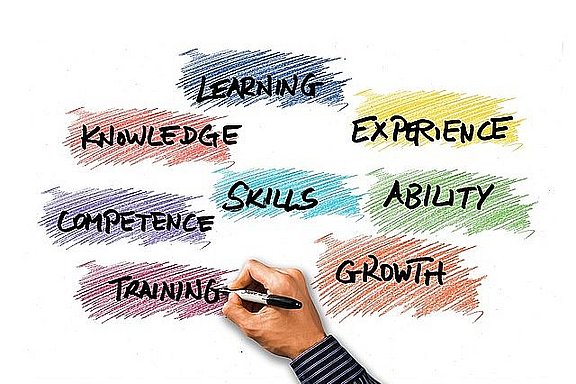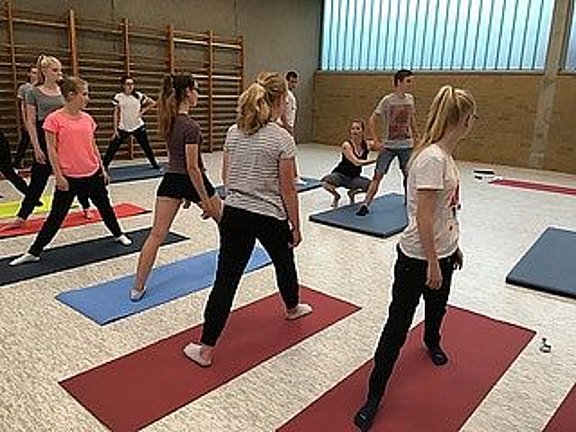Grape.com
Exam anxiety in pupils
Project overview
Multimodal stress management training for students to reduce stress and exam anxiety
Adolescence is characterised by profound changes. This involves physical and cognitive changes as well as a "social redefinition" in the sense of the gradual dissolution of the perception of being an underage child in favour of the perception of a young adult who is becoming more independent and setting themselves apart within society. This is also accompanied by changes that affect status in the family and in society, combined with privileges and at the same time duties that place new demands on the young person's self-organisation. At the same time, the demands placed on young people at school increase, as examinations (final examinations) and career choices as "initiation processes of growing up" take place during this time. These changes are very stressful for young people, especially in light of the current social processes of the Covid-19 pandemic and the crisis situation in Ukraine.
In this pilot study, we investigated the influence of a modular, multimodal stress management training programme on the perception of stress, test anxiety and self-efficacy expectations of secondary school students. The training, which is specially adapted to the adolescents' world of experience, integrates experiential learning, cognitive and instrumental stress management as well as physical activities such as yoga and meditative exercises. The aim was to promote the emotional competence, compassion and mindfulness of the participants and to reduce exam anxiety. The programme can be embedded in everyday lessons as a club or as a differentiation subject, is not graded and is noted as participation on the report card. The pilot study offered the opportunity to evaluate the effectiveness of this multimodal approach and thus to achieve a positive impact on the well-being of the students.

Further information
- Duration: 3 years
- Responsible: Professorship of Life Quality, Spirituality and Coping |Gerhard Kienle Chair of Medical Theory, Integrative and Anthroposophic Medicine
- Methods used: The study used an intervention study design with three measurement time points (t0, t1, t2) and standardised questionnaires. Information on socio-demographics and group membership was collected. The background to the research project was deliberately not explained in detail in order to avoid influencing the test results. The focus was on the connection between school and stress, without emphasising the assumed correlations.
What did we analyse?
We investigated the effects of mindful movement exercises, experiential learning, meditative and self-management techniques in upper secondary school adolescents. These include:
- Perception of stress and test anxiety
- Expectation of self-efficacy
- Conscious presence (situational mindfulness) and compassion
- Pausing in amazement and gratitude
What was the aim of the study?
The aim was to examine whether movement exercises from yoga, games from experiential learning, meditative techniques and self-management techniques can improve the perception of stress in young people and thus reduce examiner anxiety, and whether resources can be activated, including in relation to their own self-efficacy.
We consider the results obtained against the background of health care economics and didactic perspectives. This means that we consider which costs are incurred and which are avoided by such interventions, as well as their sustainable integration into existing curricula.

Project management

Yvonne Beerenbrock, M. A.
Researcher
Faculty of Health (School of Medicine) | Chair of Medical Theory, Integrative and Anthroposophic Medicine
- +49 2330 62-3663
Orcid ID: 0000-0002-1200-5437
Gerhard-Kienle-Weg 4
58313 HerdeckeRoom number: Haus D, DG

Univ.-Prof. Dr.
Arndt Büssing
Professor
Faculty of Health (School of Medicine) | Chair of Medical Theory, Integrative and Anthroposophic Medicine
- +49 2330 62-3246
Orcid ID: 0000-0002-5025-7950
Gerhard-Kienle-Weg 4
58313 HerdeckeRoom number: Haus D, DG